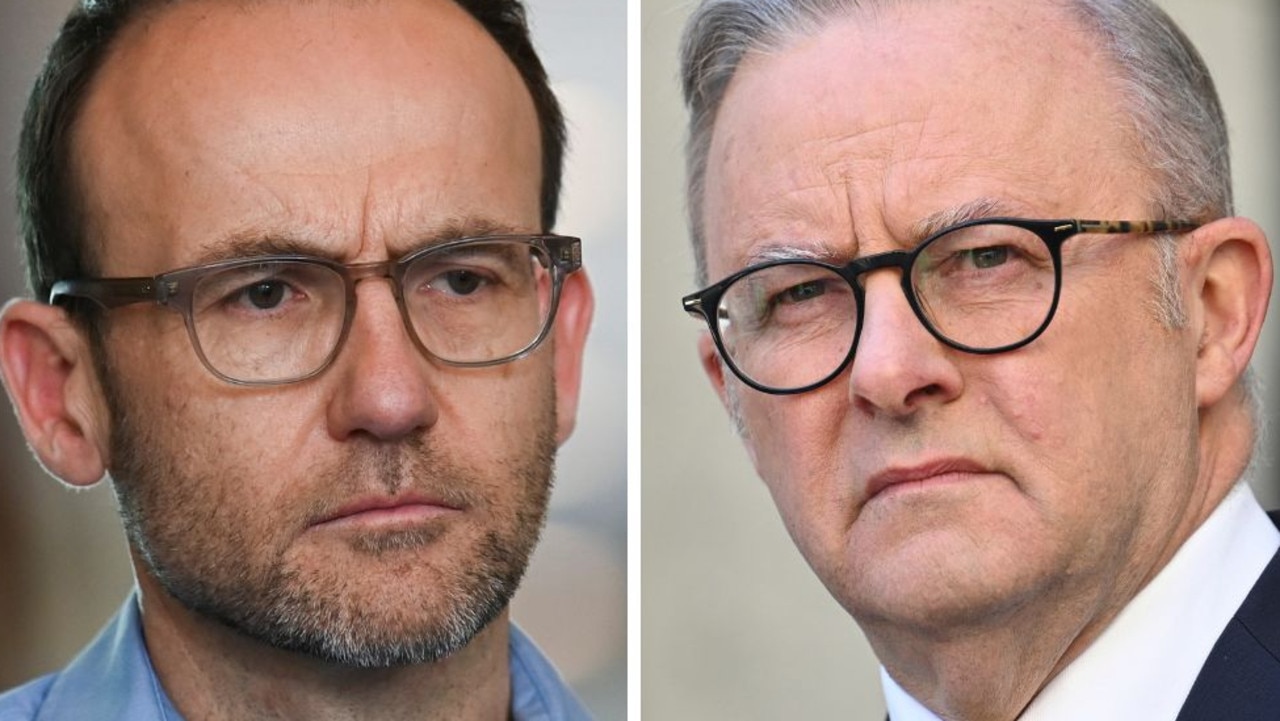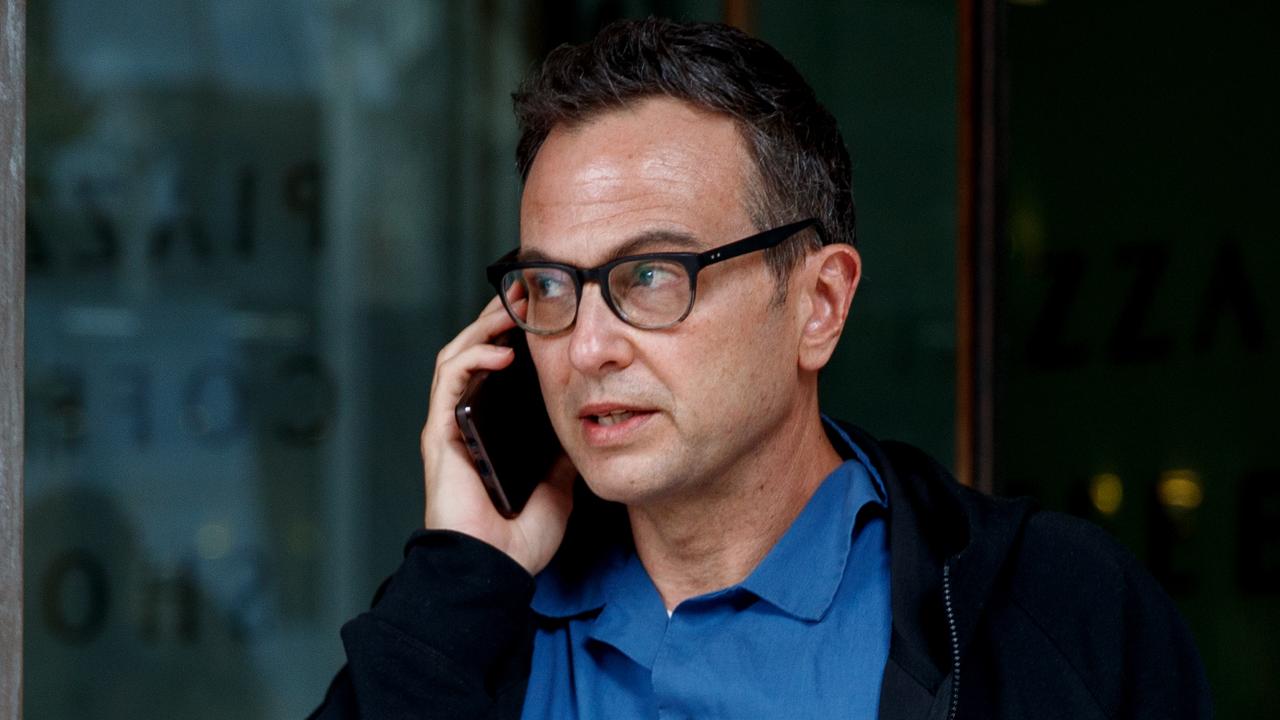Controversial indigenous domestic violence program helps perpetrator and victim
He was jailed for violently attacking his partner. Now a self-confessed serial abuser wants to change his behaviour and help others.
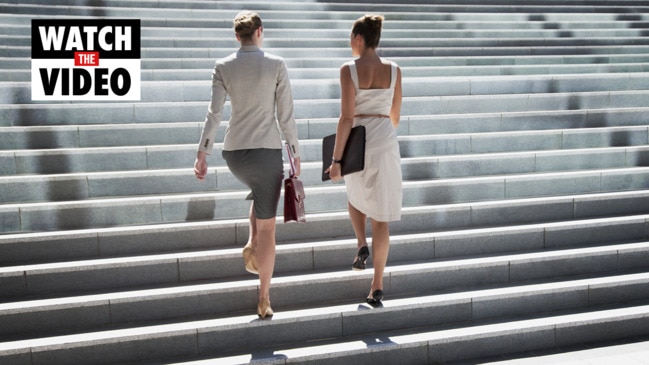
National
Don't miss out on the headlines from National. Followed categories will be added to My News.
When Wamae Ware was released from jail following a six-month sentence for punching his partner in the face, he knew this was the moment he had to change.
The self-confessed serial domestic abuser has been in jail four times for similar offences, two of them for attacks on his current partner, who is the mother of his child and stepchild.
In a previous incident he cracked her eye socket.
Now Mr Ware, 42, is receiving help from Yumba Meta, a charity helping the indigenous community, that has a somewhat controversial aim – treating both the victims of domestic violence and their abusers – and being open to working with them to stay together, if safe to do so.
The aim is to change behaviour.
“Our service operates very differently from others because we look at the bigger picture,” Yumba Meta CEO Dushy Thangiah told News Corp.

“We’re interested in both sides. We want to separate both parties and give them the time and help to work out what the issues are.
“And once they’ve worked it out we then ask the question ‘can they be together?’”
Yumba Meta works out of Townsville, Queensland, but Ms Thangiah said its success means the approach could also work in other indigenous communities around the country.
A national report published last year found First Nations women are 32 times more likely to be hospitalised due to family violence, 10 times more likely to die due to assault and 45 times more likely to experience violence compared to non-Indigenous women.
An Australian Institute of Criminology report found one in two domestic violence perpetrators reoffend.
About 20 per cent of the women Yumba Meta is currently working with have reunited with their partners.
The charity cannot remove a perpetrator if the victim wants them in their life, it’s only the police who can separate them by enforcing a protection order.
“It’s up to the clients if they want to stay together, but if we feel it is not safe we will inform them of our view and explain the reasoning,” Ms Thangiah said.
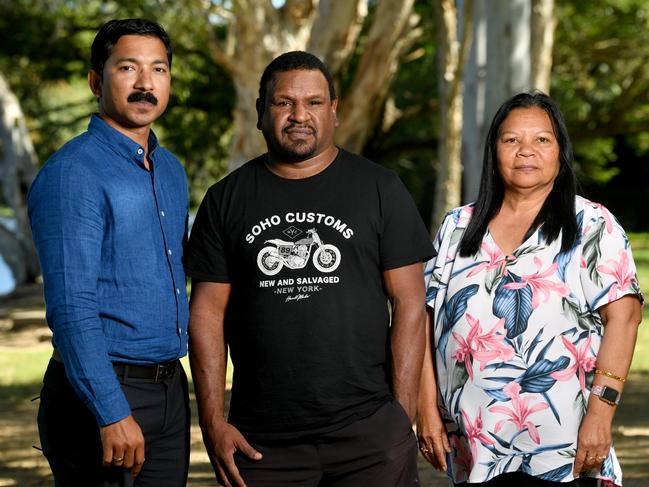
So far, 82 men have finished the men’s therapy course, and 96 per cent have not reoffended, including breaching police or contact orders.
It’s a statistic which impresses officers at the Domestic, Family Violence and Vulnerable Persons Unit who are on the frontline and work closely with the staff at Yumba Meta.
On average police in Townsville receive around 40 call outs a day for domestic violence incidents, out of a population of just under 183,000.
Up to 70 per cent of the abusers identify as indigenous.
Local police from the Domestic, Family Violence and Vulnerable Persons Unit said the program is working.
“I do believe their unique approach is working, those stats are quite impressive and show just how successful their approach and programs for both the aggrieved and respondent are,” Acting Sgt Emily Lyons said.
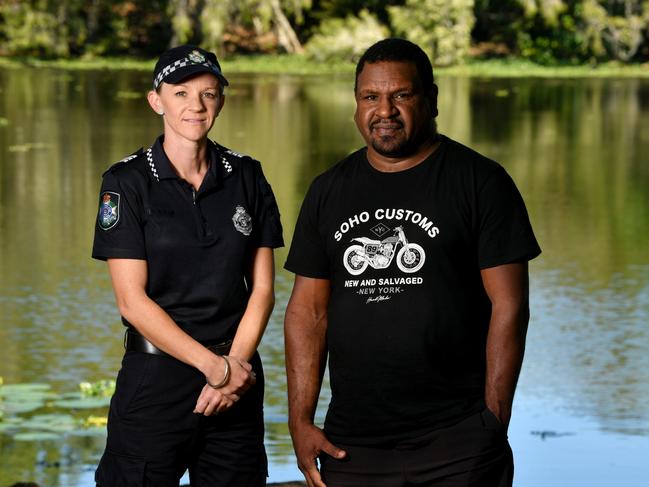
For Mr Ware, who grew up in a violent household, it is the first time he has reflected on his behaviour and the impact it has on the people he loves most.
“It’s been very intense and very emotional,” he said.
“I’ve had a lot of help to accept that violence is not right.”
Mr Ware has completed a drug and alcohol course and is coming to the end of a men’s group therapy sessions led by an indigenous elder Alfred Smallwood.
The charity has also helped Mr Ware connect with other services such as a psychologist and is encouraging him to enjoy relaxing pastimes like fishing.
Mr Ware said he is learning about why he has been violent in the past, what triggers him to be violent, how to better communicate and how to remove himself from a situation when he’s angry.
While he is currently living separately from his partner, she is encouraging him with his therapy, and the end goal is to get back together.
“I’m more settled and humble,” Mr Ware said. “I can say sorry, before I would use a swear word.”
He said what he is hoping for is an “equal, happy and healthy” relationship and that his partner “won’t be scared” of him any longer.
“I want to break that cycle of violence,” Mr Ware said.
“I want to be a better role model and father and I want my kids to know that violence is not right.”
More Coverage
Originally published as Controversial indigenous domestic violence program helps perpetrator and victim




